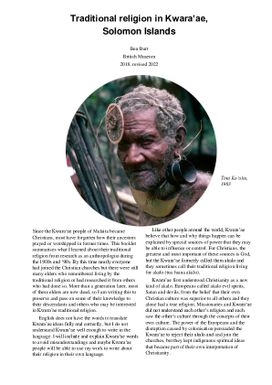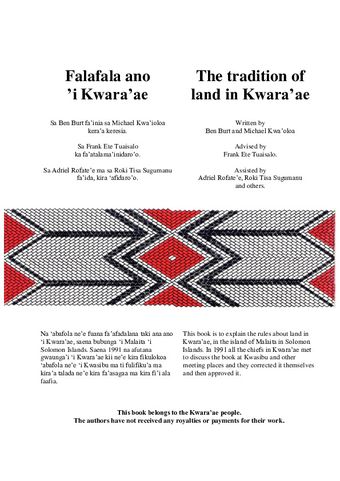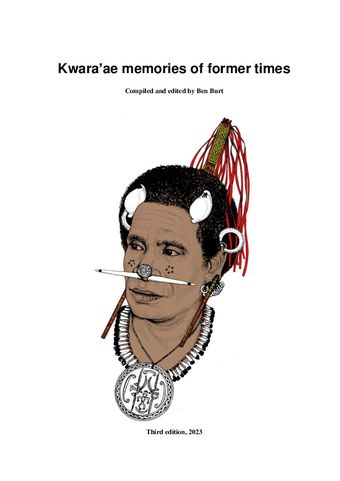Traditional religion in Kwara’ae, Solomon Islands
- Description:
- Since the Kwara’ae people of Malaita became Christians, most have forgotten how their ancestors prayed or worshipped in former times. This booklet summarises what I learned about their traditional religion from research as an anthropologist during the 1980s and ‘90s. By this time nearly everyone had joined the Christian churches but there were still many elders who remembered living by the traditional religion or had researched it from others who had done so. More than a generation later, most of these elders are now dead, so I am writing this to preserve and pass on some of their knowledge to their descendants and others who may be interested in Kwara’ae traditional religion.
- Display date:
- 1980s - 1990s
- Location:
- Solomon Islands
- Collections:
- Solomon Islands National Museum
- Content partner:
- Solomon Islands National Museum
- Availability:
- Online
-
Copyright status: All rights reservedFind out more about what you are able to do with this itemThis item is all rights reserved, with means you'll have to get permission from Solomon Islands National Museum before using it. For more information, please see our use and reuse page.What can I do with this item?Non-infringing useNZ copyright law does not prevent every use of a copyright work, and this item may be hosted by an international institute or organisation. You should consider what you can and cannot do with a copyright work.No sharingYou may not copy and/or share this item with others without further permission. This includes posting it on your blog, using it in a presentation, or any other public use.No modifyingYou are not allowed to adapt or remix this item into any other works.No commercial useYou may not use this item commercially.
Related items
Welcome and warm Pasifik greetings
The information on this site has been gathered from our content partners.
The names, terms, and labels that we present on the site may contain images or voices of deceased persons and may also reflect the bias, norms, and perspective of the period of time in which they were created. We accept that these may not be appropriate today.
If you have any concerns or questions about an item, please contact us.


